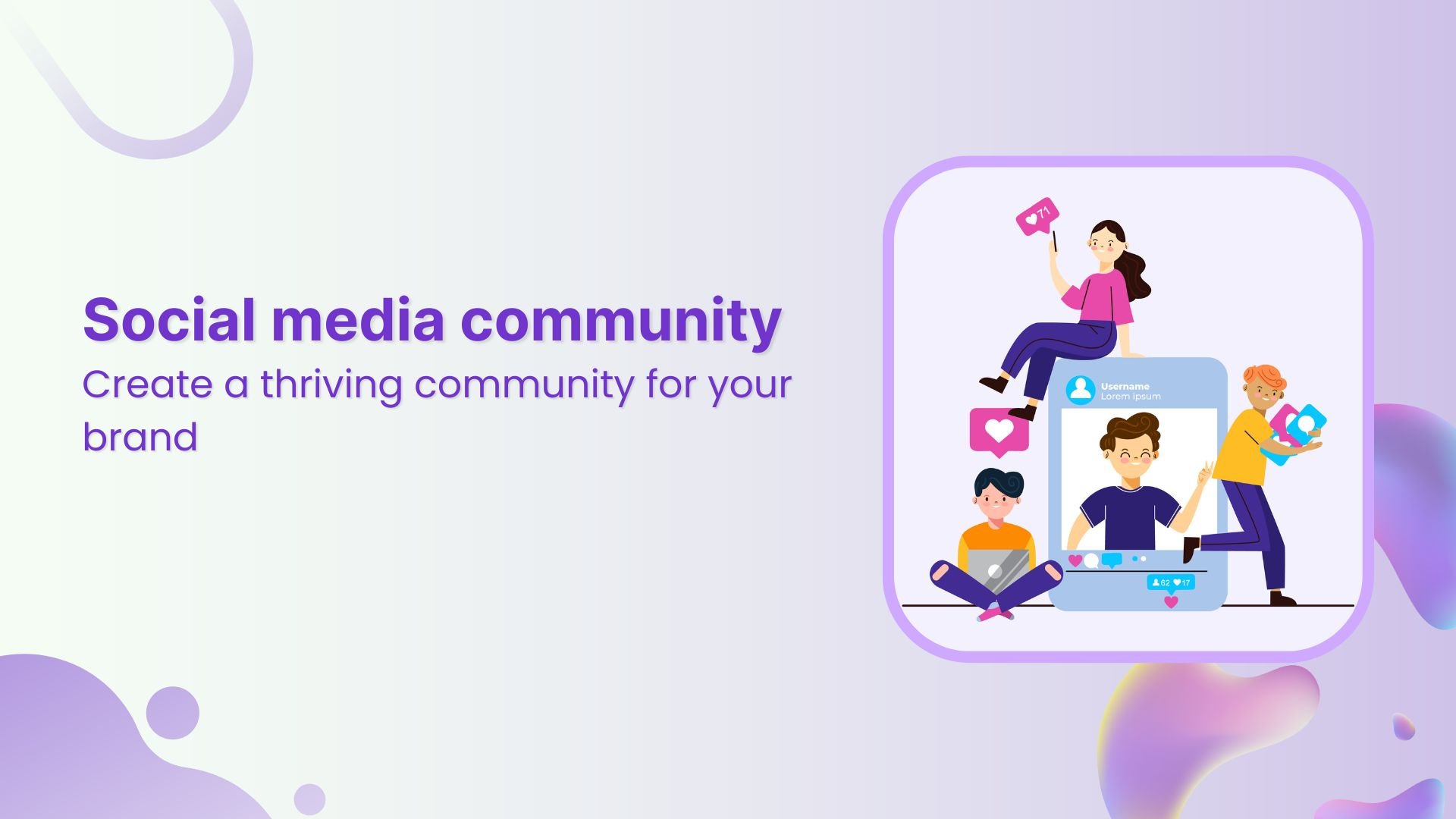Look, we’ve all seen those brands with millions of followers who can barely get 50 likes on a post. That’s not a social media community but digital tumbleweeds. Building an actual community where people show up, engage, and genuinely care about your brand? That’s a whole different ballgame.
Building a social media community in 2025 feels like trying to start a conversation at a party where everyone’s wearing noise-canceling headphones. The digital landscape is more crowded than ever, attention spans are shorter than TikTok videos, and every brand is screaming for engagement.
But here’s the thing: the brands that actually succeed aren’t the loudest ones, but the ones that know how to bring people together. Read along to uncover all the secrets of community building for your brand.
What is a social media community?
A social media community goes beyond your follower count or the people who hit “like” on your latest post. It’s a group of people who actively engage with your brand, share similar interests or values, and interact with you and, more importantly, with each other.
It is the difference between having 10,000 people at a concert who are all on their phones versus having 1,000 people singing along to every word. The energy, the connection, and the impact are all completely different.
Real social media communities have conversations. They create user-generated content and defend your brand when Karen from accounting leaves a one-star review because her order was five minutes late. Essentially, they’re your unpaid marketing team volunteering to always have your back.
Why is it important to build a social media community?
Here’s the thing: social media algorithms are basically designed to make you cry. One day you’re reaching 50,000 people, the next day it’s 500. But communities? They stick around regardless of what Mark Zuckerberg decides to do on a Tuesday.
Communities provide stability in an unstable digital world. When people feel connected to your brand and to each other, they become less price-sensitive, more loyal, and way more likely to recommend you to friends. It’s like the best of reddit put in a group chat where everyone’s genuinely excited about your product launches.
Plus, communities give you direct feedback without having to pay for expensive market research. Your community members will tell you exactly what they want, what they hate, and what you should do next. Sometimes they’ll even tell you things you didn’t know you needed to hear.
This also makes knowing your community and, by extension, monitoring them that much more important. Being on top of your community’s values helps you avoid awkward misalignments between brands and target audiences as well as messier crises that could very well give you a one-way ticket to the cancel culture fest.
Also read: How to Positively Handle Negative Comments on Social Media?
5 Types of social media communities
Not all social media communities are created equal. Here are the main types you’ll encounter in the digital wilderness:
1. Brand communities
These revolve around love for a specific brand or product. Think Apple fanboys or Tesla enthusiasts who will argue with strangers on the internet about battery life. Brand communities are incredibly valuable because members are already invested in what you’re selling.
2. Support communities
These exist to help people solve problems or learn new skills. Facebook groups for new parents, LinkedIn communities for digital marketers, or Reddit threads for literally anything you can think of. People join these communities because they need help, and they stay because they want to help others.
3. Niche interest communities
These bring together people who share very specific interests or hobbies. We’re talking about communities for vintage camera collectors, sourdough baking enthusiasts, or people who are way too passionate about mechanical keyboards. The more specific, the more engaged these niche communities tend to be.
4. Industrial communities
Professional communities where people in the same industry share knowledge, network, and complain about their jobs. These are goldmines for B2B companies because everyone’s already thinking about work-related problems you might be able to solve.
5. Regional communities
Location-based communities that connect people in the same city, neighborhood, or region. Local businesses absolutely crush it in these communities because they can provide real, tangible value to people nearby.
How to build a social media community?
Social media community building is far from posting motivational quotes with sunset backgrounds. It requires strategy, consistency, and actually caring about the people you’re trying to connect with.
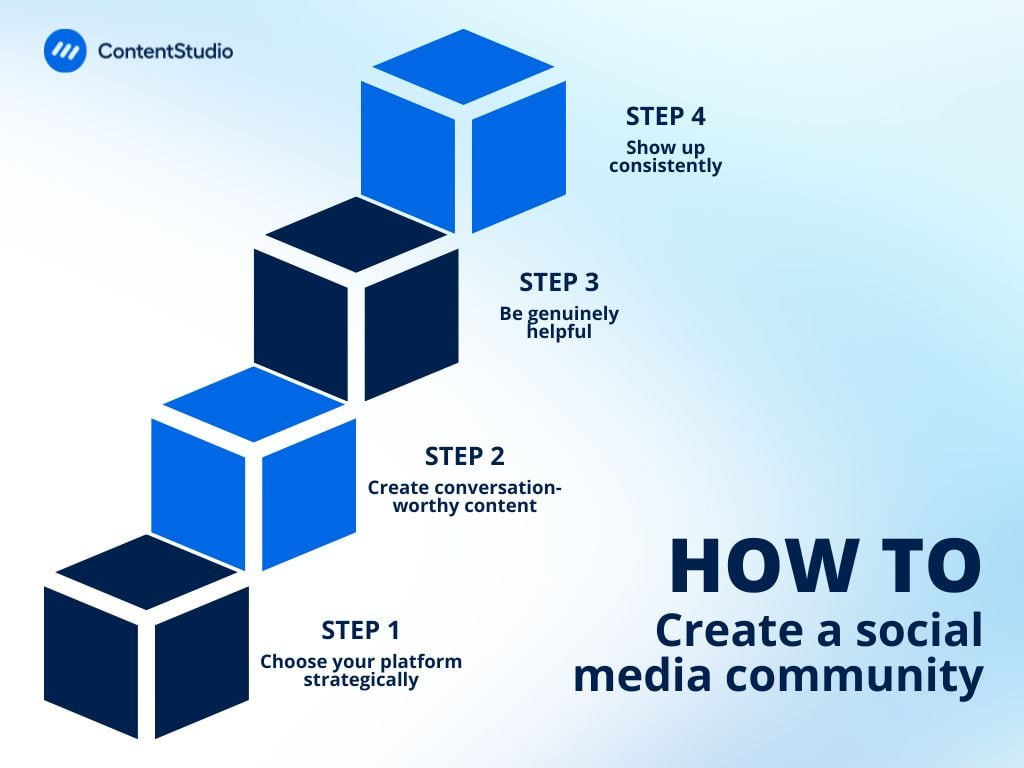
Choose your platform strategically
Start by picking your platform wisely. Don’t try to be everywhere at once;, as that will only make you spread yourself thinner than a CVS receipt. Choose the platform where your target audience actually hangs out and where the format makes sense for community building.
Create conversation-worthy content
Create content that sparks conversation, not just consumption. Ask questions, share behind-the-scenes content, post polls, and start debates (friendly ones). The goal is to get people talking to each other, not just talking to you.
Be genuinely helpful
Be genuinely helpful. Share valuable information, answer questions thoroughly, and connect community members with each other. If someone asks a question you can’t answer, tag someone in the community who can. Remember, what you’re doing is building an ecosystem out of your community.
Show up consistently
Show up consistently. Communities die when the person who started them disappears for three weeks because they got busy with “real work.” Consistency builds trust, and trust builds communities.
The easiest way to manage and grow your social channels.
Try ContentStudio for FREE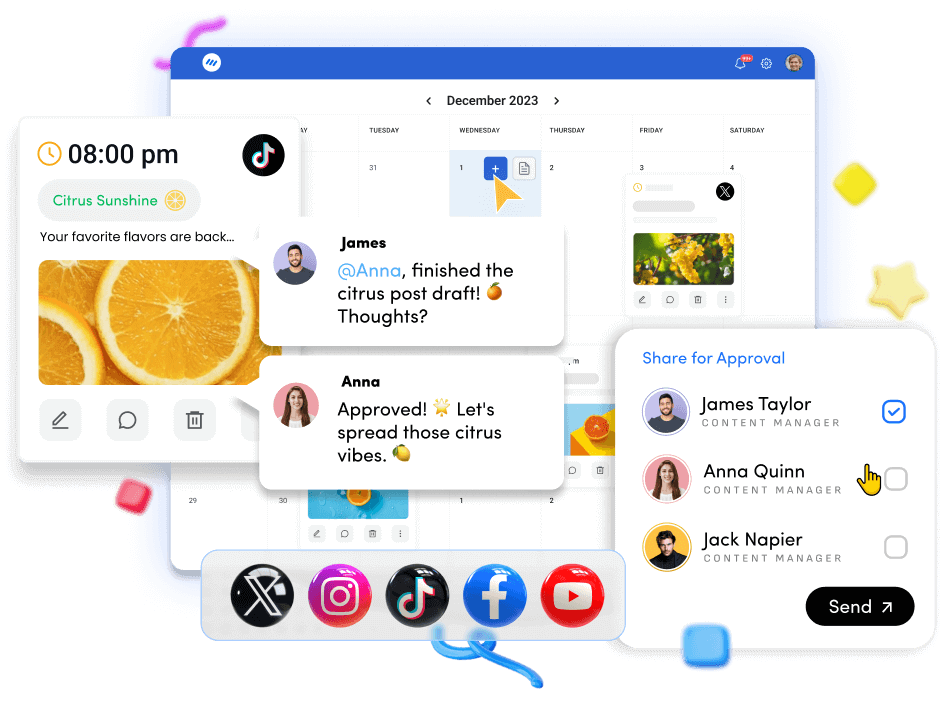
7 Benefits of building a social media community for your brand
Building a strong social media community comes with perks that make all the effort worth it:
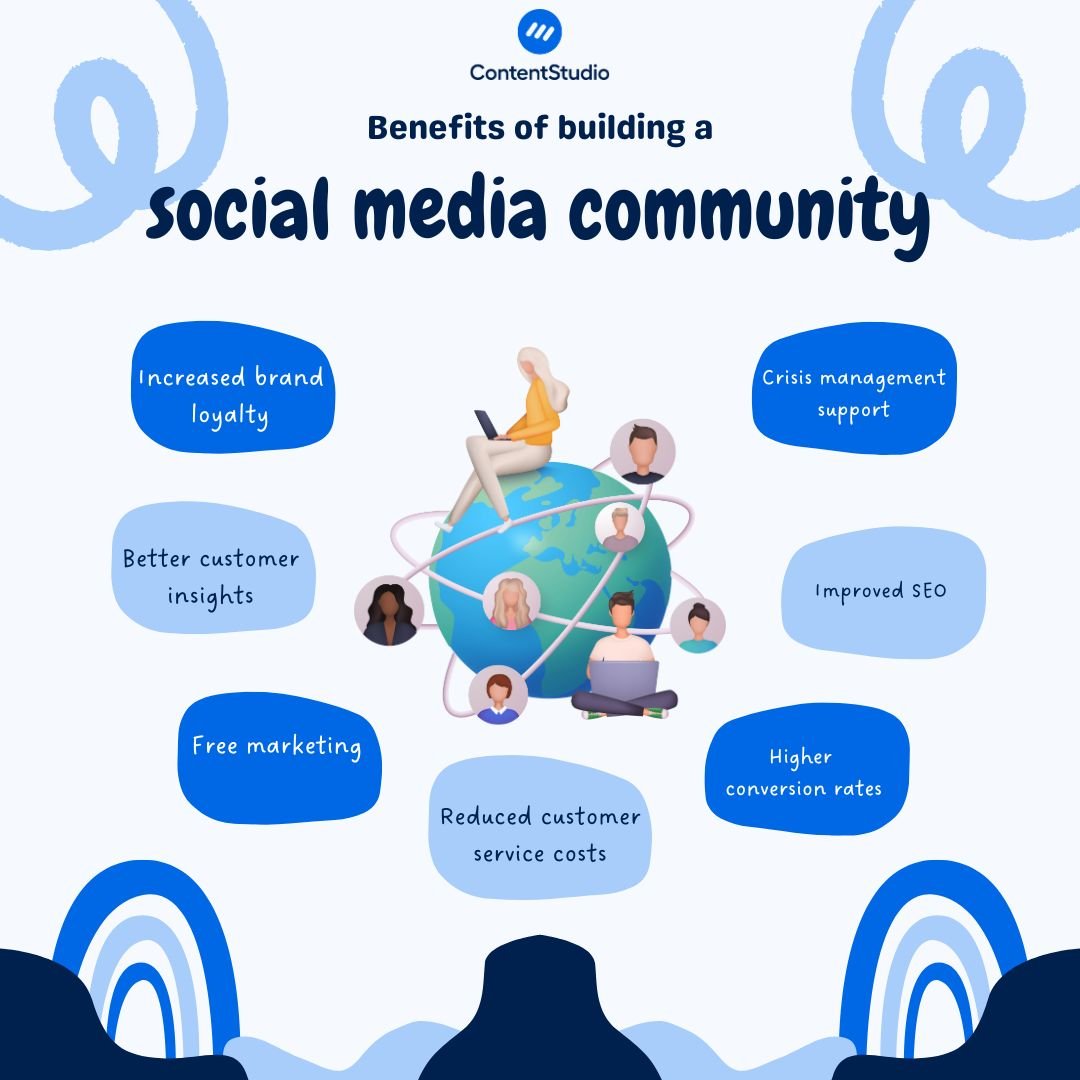
1. Increased brand loyalty
Community members stick around longer and spend more money. They level up from customers to advocates. Plus, they’re way less likely to jump ship when a competitor offers a discount or flashy new feature.
2. Better customer insights
Your community will tell you exactly what they want, often before they even know they want it themselves. This real-time feedback is worth more than any expensive focus group because it comes from people who are genuinely invested in your success. You’ll spot trends, identify pain points, and discover opportunities that your competitors are completely missing.
3. Free marketing
User-generated content, word-of-mouth recommendations, and organic reach that algorithms can’t touch. Community members create authentic content that performs better than anything your marketing team could produce because it’s genuine. When someone’s friend recommends your product in a community discussion, that carries 10x more weight than any paid ad.
4. Reduced customer service costs
Community members help each other solve problems, reducing the load on your support team. Your most engaged users become unofficial customer service reps, answering questions and sharing solutions 24/7. This peer-to-peer support often resolves issues faster than traditional support channels because community members speak the same language.
5. Higher conversion rates
People are more likely to buy from brands they feel connected to and communities they’re part of. When someone sees other community members genuinely excited about a product launch or sharing success stories, it removes the skepticism that kills most sales. Social proof from real community members is conversion gold.
6. Improved SEO
Active communities create fresh content, backlinks, and social signals that search engines love. Every community discussion, shared link, and user-generated post adds to your digital footprint in ways that boost your search rankings. Google recognizes when real people are talking about your brand, and it rewards that authentic engagement.
7. Crisis management support
When things go wrong (and they will), a strong community can help defend your brand and provide context during difficult situations. Community members who know your brand’s true values will speak up when trolls attack or when misunderstandings spiral out of control. They become your first line of defense in the court of public opinion.
Also read: 17 best social listening tools in 2025 (free & paid)
Successful social media communities to learn from
Let’s look at some brands that have absolutely nailed the community game:
Lego
Lego’s community strategy is basically a masterclass in letting your customers be the stars. They showcase user-created builds, run contests for custom designs, and even turn fan creations into actual products you can buy in stores.

Their approach works because they understand that their community isn’t looking to buy plain old plastic bricks; they’re seeking creativity, nostalgia, and the satisfaction of building something awesome. The community then feeds into that core motivation.
Duolingo
Duolingo turned language learning into a social experience with streaks, leaderboards, and community challenges. They’ve gamified the entire process while building a community of people who genuinely support each other’s learning journeys.
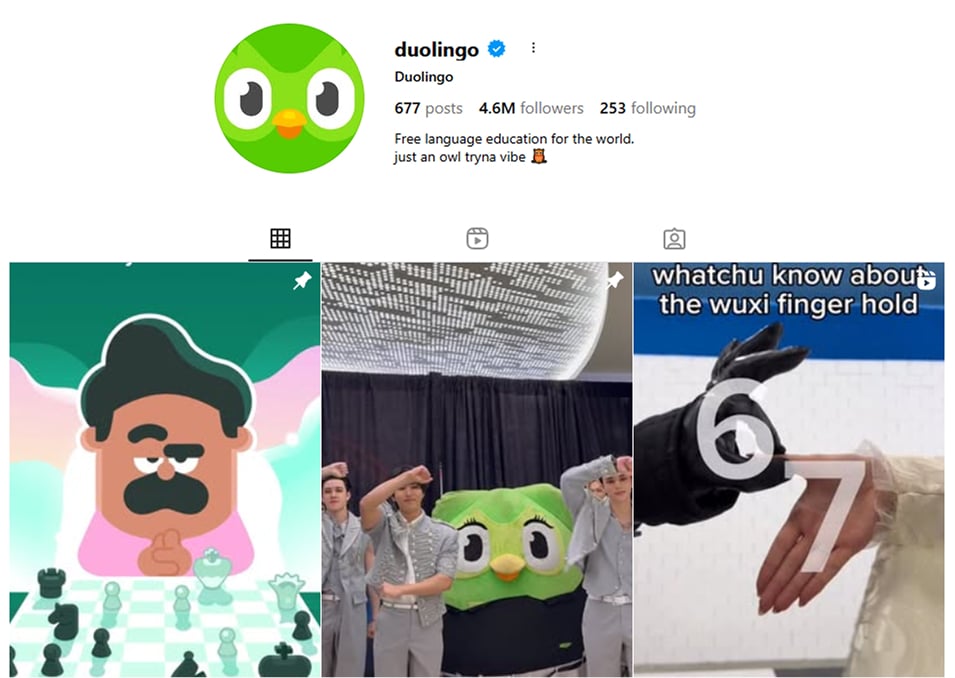
Their social media presence perfectly mirrors their app; it’s playful, encouraging, and questionably unhinged. Their mascot has become a global meme, which is basically free marketing. They’re in on all the viral trends, even in a crisis, and that green owl is instantly recognized for pinging emotionally charged threats if you miss your daily lesson by 3 seconds.
Wendy’s
Wendy’s Twitter community is built around sass, humor, and the shared experience of loving to watch a fast-food chain roast competitors and customers alike. They created a community where people show up specifically to see what Wendy’s will say next.
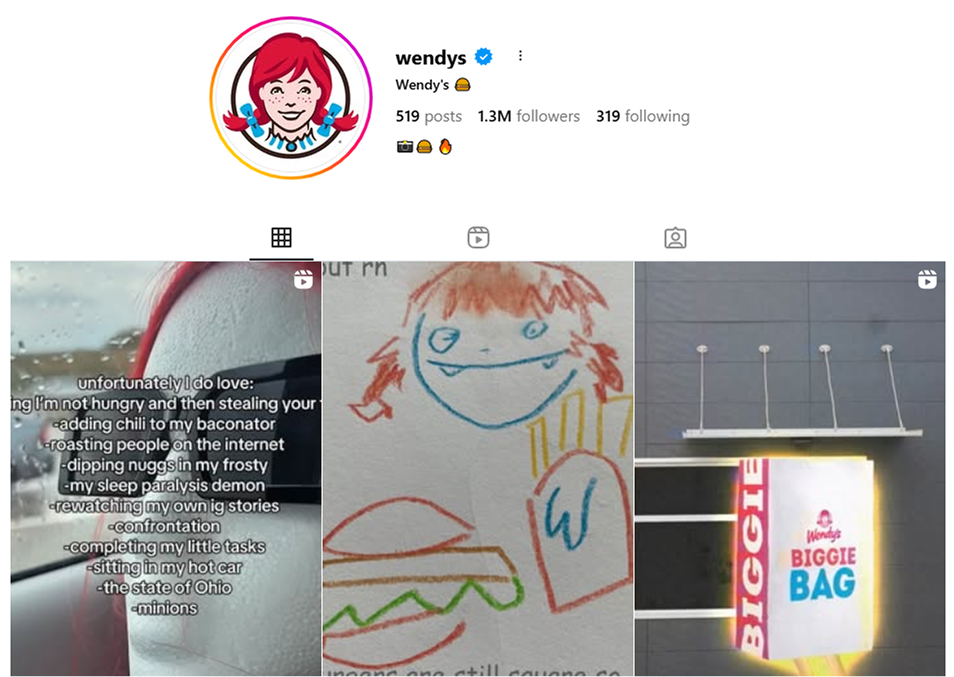
It’s bold, it’s risky, and it works because they stay true to their voice while actually engaging with their community instead of just broadcasting at them.
Red Bull
Red Bull built their community around extreme sports, adventure, and pushing limits. Selling energy drinks is really more of a side quest. What they truly sell is a thrilling lifestyle of achieving the unbelievable and creating content out of these moments that their community actually wants to consume.
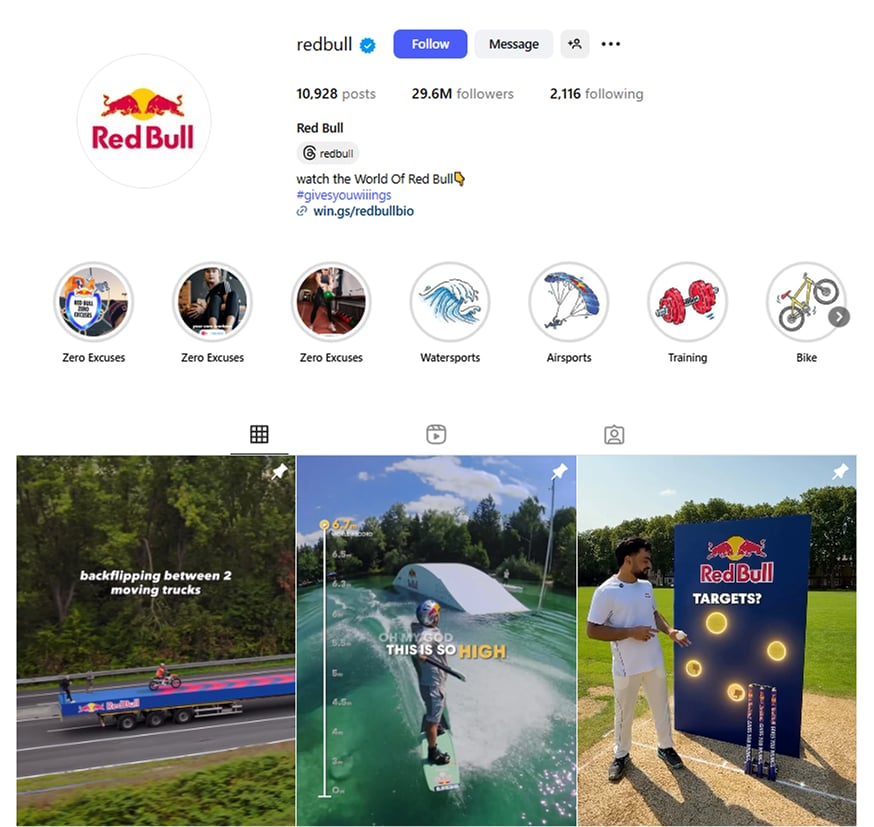
Their community members are not only regular customers but also expand to include athletes, adventurers, and creators who align with Red Bull’s brand values. The product has become secondary to the community experience.
Next step: Social media community management
Building a community is just the beginning. Managing it effectively is what requires double the work, dedicated attention, and the right tools. This is where a social media community manager becomes essential. They’re the ones who keep conversations flowing, moderate discussions, and ensure your community stays healthy and engaged.
A solid community management strategy involves setting clear guidelines, responding to comments and messages promptly, and creating regular touchpoints with your community members. You need systems in place to monitor conversations, track engagement, and measure community health over time.
Tools like ContentStudio.io’s social inbox feature can streamline community management by centralizing all your social media interactions in one place. Instead of jumping between platforms to respond to comments, messages, and mentions, you can manage everything from a single dashboard, ensuring nothing falls through the cracks.
Conclusion
Building a social media community that actually matters is about creating genuine connections where people feel valued and heard. The brands that nail this don’t just build audiences; they build movements where customers become advocates and growth happens naturally through real human connection. Start small, stay consistent, provide real value, and your community will grow organically.
FAQs
What is a social media community?
A social media community is a group of people who actively engage with a brand, share common interests or values, and interact with each other through social media platforms. It goes beyond followers to include genuine engagement and conversation.
What is the role of a social media community manager?
A social media community manager facilitates conversations, moderates discussions, responds to community members, creates engaging content, and maintains the overall health and growth of the community. They’re the human face of the brand within the community.
How do I build a social media community?
Start by choosing the right platform for your audience, create content that encourages conversation, be genuinely helpful and responsive, maintain consistency, and focus on connecting community members with each other, not just with your brand.
What is the benefit of a social media community?
Social media communities increase brand loyalty, provide valuable customer insights, generate free marketing through user-generated content, reduce customer service costs, improve conversion rates, boost SEO, and provide support during crisis situations.
